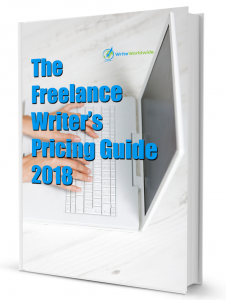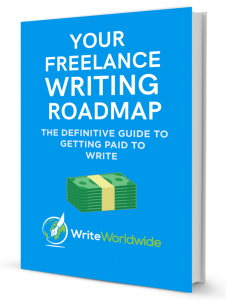So you’ve decided you want to launch your freelance writing career. Maybe you’ve taken a few steps – you’ve got that writer website up, secured a few pieces of social proof, and you’ve sent out your first round of pitches.
You might be thinking about some critical tasks that you need to get on with: sharpening your English, finding a great proofreader, or positioning yourself and marketing effectively to find that first paying client.
The weight of expectation
But even with all that accomplished, there’s an even more important question that you need to ask yourself: what do you expect to happen now?
There’s no arguing that some experience with the written word is needed if you want to succeed in the freelance writing game. But your own expectations – and how you deal with them – have a huge amount of power, and managing them correctly is the key to determining each stage of your career.
Imagine this scenario: You write an article for a client after they really loved your pitch.
You spent a long time on the article getting it as polished as possible because you’re just so excited to get the job and finally get one of your ideas accepted. A few days later, an email comes back from the client -who says your article is FULL of basic mistakes and riddled with grammatical errors.
In fact, according to them, it’s practically unreadable! You feel crushed. You KNOW there’s a great article in there somewhere (your pitch got accepted after all, right?) but the feedback from the client is nothing like you thought it would be. And here’s where the answer to that earlier question – what do you expect to happen now? – becomes crucial in your response to this setback.
Use mental models
You sit there staring at the email. You can’t believe that after all the hard work and enthusiasm you put into the project, this is the response you’ve got. You feel like phoning up the client just to vent, or hey, why don’t you email them back right now?
They obviously don’t know what they’re talking about at all!! But this is a knee-jerk reaction, and not one that will help you break through your disappointment OR build your freelance writing career (it might even kill your writing career altogether).
So what can you do instead? Believe it or not, the answer to that question occurs long before you had the idea for the article – even before you found the client!
The best way to respond to an unexpected circumstance – such as feeling like you want to give up when you thought you would feel elated – is to train your brain to construct a detailed picture of a situation before it happens. That way, if something occurs that is different to the picture you had built up in your mind, you’re prepared for reality to take you left instead of right or up instead of down.
Then, you can bypass the surprise and automatically choose the best way to respond. This is what’s known as mental modelling, and – a lot like writing – you get better at it the more you do it.
Choosing the better outcome as a freelance writer
Let’s take a look at the scenario you imagined earlier, with and without using a mental model. Without a mental model you feel crushed and frustrated at the clients response, and quickly fire off an angry rude reply.
A few hours later, you’ve calmed down and start to panic. You log into your emails to contact the client again and apologise, but it’s too late. The client is appalled at your unprofessional behaviour, and vows to tell everyone to steer clear of you. You’ve lost the project, and your reputation.
With a mental model, you’ve already constructed a vivid image in your mind of what you would do if you don’t get a great response from the client straight away. You still feel disappointed, but already have the resources and a plan of action in place to take on-board the clients criticism and improve your craft.
You send a reply to the client thanking them for their feedback and asking for more specific detail on the weakest areas of your article and the best way you can both move forward. A plan is agreed for when you will send revisions to the client, and they are impressed with your determination and willingness to learn and become a better writer. They want to keep working with you, and even ask for more pitch ideas.
It’s easy to see which of these outcomes is the better one, and how with a little training and preparation it’s possible for writers like you to strengthen your career against setbacks – and prepare your mind for success!
And speaking of the mind, did you know that there are 6 mindsets that you really should master if you want to be a successful writer? Take a look at Nick’s post on the matter and see how many you’ve already tapped into.




Excellent article. I think a lot of us don’t know how to meet what appears to be ‘failure’. You’ve shown that how you respond to rejection is just as important a learned tool as the craft of writing is. Nice one.
Thanks for your input, Kate. I’m really glad you liked the piece and I appreciate the kind feedback. Cheers!
After reading this article. I am able to figure out one of my writing blocks. The reason Why I am afraid to pitch is not because I doubt my writing. It’s because I never had thought about the plan B, like you mention in this article. Able to handle Criticism and not upto the expectation response from the client is one of the skills one should add to his/her habits.
Thanks for such a beautiful article. Keep writing, Keep inspiring.
Hi Krishan – I’m glad this article was useful for you and helped you figure out your block. Best of luck on your writing journey!
Cheers, Ciaran